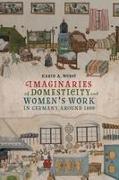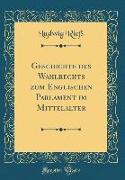- Start
- Imaginaries of Domesticity and Women’s Work in Germany around 1800
Imaginaries of Domesticity and Women’s Work in Germany around 1800
Angebote / Angebote:
Examines a variety of texts from late Enlightenment Germany to provide a nuanced rethinking of women's roles as wives, mothers, and housekeepers, creators of the cultural spaces of the home.Domesticity, a set of practices, emotions, and values culminating in a nourishing emotional and physical ambience - the "feel" of being at home and belonging - connects one's subjective experience to the material environment. In late Enlightenment Germany, writers from Joachim Heinrich Campe and Theodor von Hippel to Sophie La Roche imagined the home as a space where true "humanity" would be realized. The high-stakes cultural formation of domesticity was part of a complex discourse on the pursuit of happiness as a life well lived. As domesticity became a surrogate for the lost religious certainties of the vanishing pre-modern world, an obsessive anxiety concerning its delineation in discourse suggested its importance but also its fragility and the consequences of its failure.Karin A. Wurst examines didactic novels by female authors, autobiographical texts, popular philosophy, advice literature, periodicals, pedagogical tracts, and household manuals in pursuit of a nuanced rethinking of the relationship between women's roles as wives, mothers, and housekeepers and as creators of the cultural spaces of the home. She finds that the high-value imaginary of domesticity encouraged women's agency insofar as they were tasked with turning theoretical ideals into everyday practice. At the same time, her book shows the under-illuminated contribution of women's work to social and political change from within the patriarchal structures of eighteenth-century Germany.
Folgt in ca. 10 Arbeitstagen




